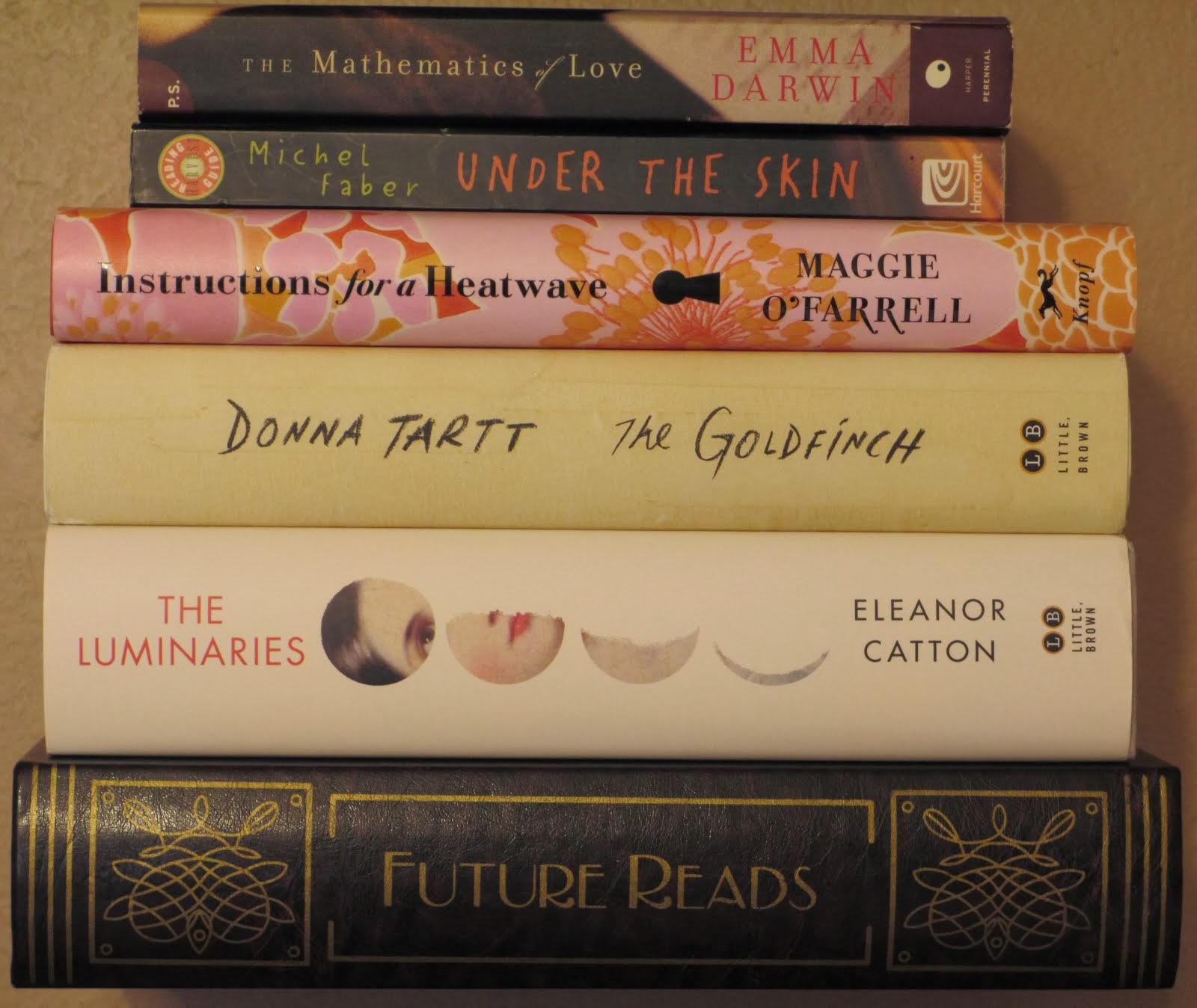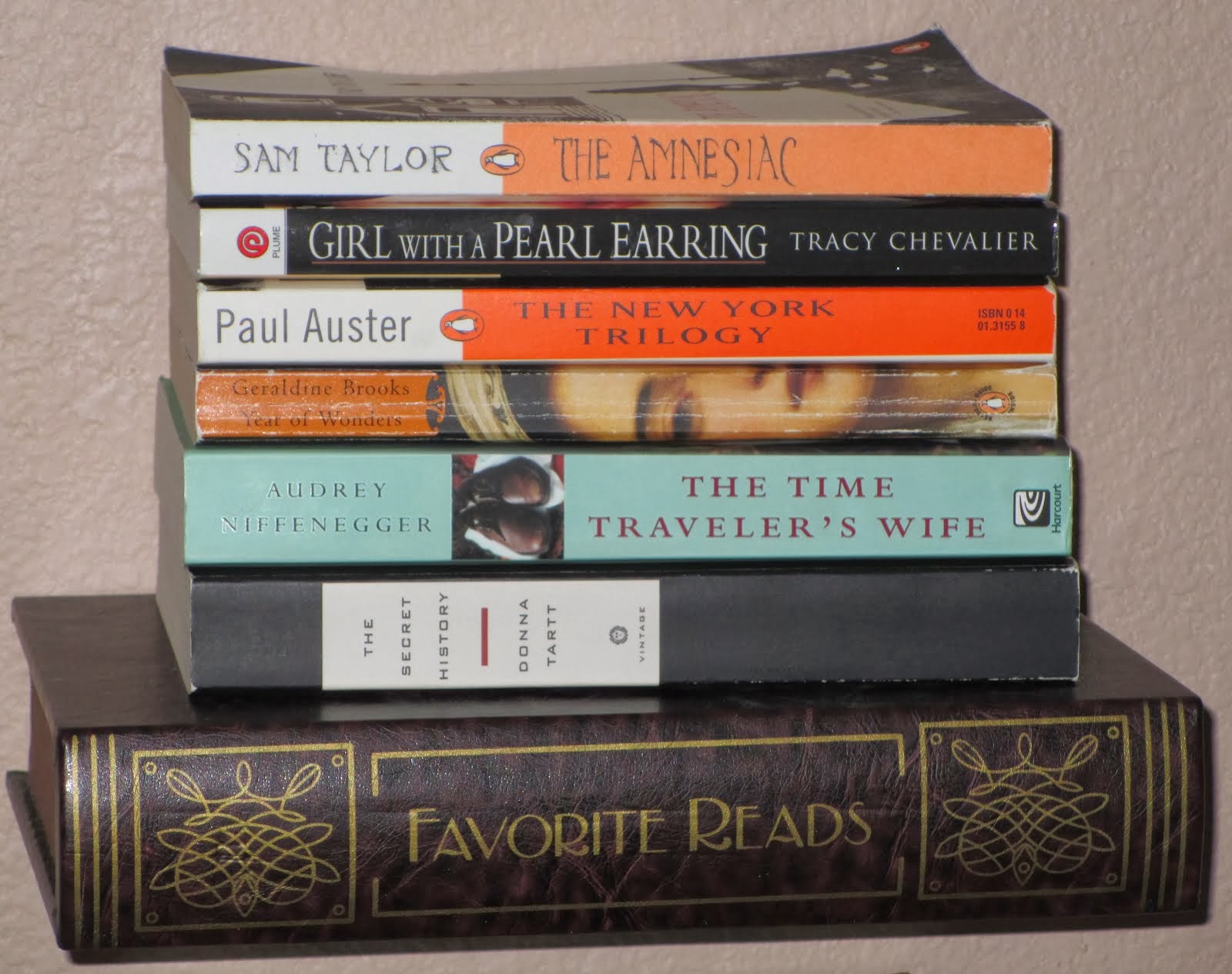 I was warned away from this book by both Rachel ("the movie was better") and Elvis ("the book is exactly the same as the movie except without Brad Pitt's muscles or the cool Pixies soundtrack") but I've wanted to read it ever since I heard it existed. (I'm not sure how long it's been since I saw the movie--years, anyway--and back then I hadn't realized it was first a book. It's kind of sad, how often that happens.)
I was warned away from this book by both Rachel ("the movie was better") and Elvis ("the book is exactly the same as the movie except without Brad Pitt's muscles or the cool Pixies soundtrack") but I've wanted to read it ever since I heard it existed. (I'm not sure how long it's been since I saw the movie--years, anyway--and back then I hadn't realized it was first a book. It's kind of sad, how often that happens.)When Hud saw what I was reading, he said, "You're reading Fight Club? That just doesn't seem like the kind of movie anyone would want to read. It would be like reading Die Hard." I disagree. There's much more to Fight Club than fighting. And, come to find out, Hud hasn't seen the movie. (How is that possible?) He didn't even know the Big Thing. All he knew was that there was something called Project Mayhem, there were fights, and Brad Pitt wore fur.
I've seen the movie, so I already knew all about the Big Thing. And now Hud knows too, because I told him. (Oops.) But that was just about the only thing I remembered--that, the first rule of Fight Club, and the scene with the big yellow dishwashing glove. (The important parts, right?) I mean, here's how bad my memory is: I couldn't remember what the movie had to do with soap.
It's been long enough since I've seen the movie that I thought the book was really, really good. If you've seen the movie often enough that you can quote every line, or if you just watched it last week, I will warn you away from the book along with Rachel and Elvis. You won't find any extra tidbits in the book that you haven't already learned from the movie. But if it's been close to a decade since you watched it, or if your memory isn't any better than mine, I say go for it and read the book. If you loved the movie but don't remember it very well, you'll love the book too. Even without Brad Pitt's muscles (because, see, you can imagine them).
Reading the book made me want to see the movie again. In fact, even though I heart the book, I think Rachel and Elvis were right about the movie being superior. Whenever I get a craving for Fight Club in the future, I'll probably reach for the movie instead of the book.
What about someone who has neither read the book nor seen the movie and has managed to avoid hearing about the Big Thing? If such a person exists, should they read Fight Club or watch it? To me, the most important factor in this choice is the impact of the Big Thing. I want to say it seemed like a bigger surprise in the movie, although that's probably because I knew it and expected it by the time I read the book. Here's my call: either 1) watch the movie only, 2) watch the movie now and read the book after a few years, or 3) read the book and then watch the movie. Notice that the common denominator is watching the movie . . .


















